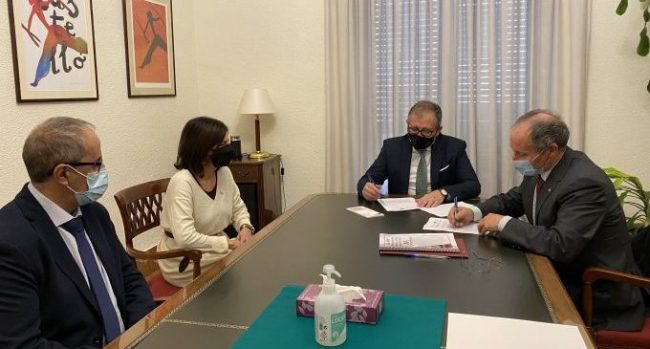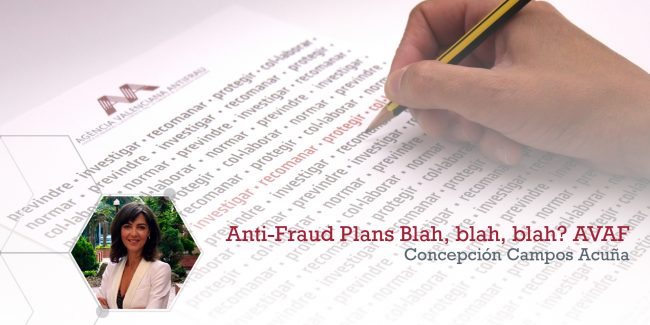“Blah, blah, blah”…, with this onomatopoeia the activist Greta Thunberg summarized the outcome of the Glasgow climate summit, at COP 26, in relation to the agreements reached and the real impact it will have on the objectives pursued, in summary, pure facade and empty speech. This same feeling is what I am having with the requirement of Anti-Fraud Plans established by Order HFP / 1030/2021, of September 29, which configures the management system of the Recovery, Transformation and Resilience Plan, with the It is intended to provide a framework of integrity to the entities responsible for the management of the Recovery Plan. A preliminary reflection. The non-existent general culture of integrity or Compliance (compliance) plans / programs / systems, and not only as a desirable objective from the perspective of the institutional culture of good governance and good administration, but also when there is a specific legal obligation and enforceable, as it happens in the matter of contracting. As we have repeatedly pointed out, Law 9/2017, of November 8, on Public Sector Contracts (LCSP) includes a clear commitment to integrity and, specifically, in art. 64 imposes on the contracting authorities the duty to take the appropriate measures to fight against fraud, favoritism and corruption, and to prevent, detect and effectively solve conflicts of interest that may arise in bidding procedures in order to to avoid any distortion of competition and to guarantee transparency in the procedure and equal treatment of all candidates and tenderers. Obligation that, apart from some exceptional examples, such as the Integrity Plan in Public Procurement of the Vigo City Council (whose consultation I recommend) has not been fulfilled in general, so it is still necessary to have a robust system of incentives for compliance, and it seems that in this case, access to the financing contemplated by the Recovery, Transformation and Resilience Plan Funds (PRTR) may be sufficient. Or not. Before entering the matter, the obligatory criticism that deserves how selective this obligation is. As it is framed exclusively as a duty for the projects and subprojects in which the measures (reforms / investments) provided for in the components of the PRTR are broken down, and not for the public management as a whole. As if the destination of the other public funds, which are largely paid for with citizens’ taxes, were not worthy of guaranteeing their correct use, for the defense of the general interest and the improvement of public services. In this way, the technique used in its day by Royal Decree-Law 36/2020, of December 30, which approves urgent measures for the modernization of the Public Administration and for the execution of the Plan of Recovery, Transformation and Resilience. This rule was intended to establish an execution framework with which to avoid the administrative obstacles and bottlenecks detected and that only deserve to be eliminated for this purpose, not for ordinary public management. Anti-fraud plans, mandatory? The Ministerial Order establishes in its article 6 the obligation that every entity, decision-maker or executor, that participates in the execution of the PRTR measures must have a “Plan of anti-fraud measures”. The purpose of this imposition is to allow you to guarantee and declare that, in your respective scope of action, the corresponding funds have been used in accordance with the applicable regulations, in particular, with regard to the prevention, detection and correction of fraud, corruption and conflicts of interest, as a reinforcement of these mechanisms and thus complying with the obligations that article 22 of Regulation (EU) 241/2021 of the European Parliament and of the Council, of February 12, 2021, imposes on Spain in relation to the protection of the financial interests of the Union as a beneficiary of the MRR funds. Mistrust in public management? We must not see it that way, it is not a veiled accusation, it is well known that integrity constitutes one of the pillars that backbone the management of the European Union, which it transfers and imposes on the Member States in the execution of funds. There is a clear precedent, the management of the EDUSI Funds, which had already been a step forward in relation to ethical standards in management, by imposing different obligations, such as the declaration of conflicts of interest, having ethical codes, commissions and other issues. But now, with the requirement of what are known as anti-fraud plans, a further step is taken and we hope that it will be extended with greater scope than the PRTR. Although in reality, non-compliance is part of the DNA of our model. As a sample, a button. The deadline to carry out the transposition work of Directive (EU) 2019/1937 Of the European Parliament and of the Council of October 23, 2019 on the protection of people who report infringements of Union law, despite the time has elapsed and its inclusion in the Annual Regulatory Plan, the transposition law is neither expected nor expected, within the established deadline, December 17, 2021. Some interesting observations From the reading of the Ministerial Order, the mechanism of operation of the Anti-Fraud Plans can be deduced, but there are a couple of observations that we must highlight. The first, the term. 90 days, how daring, how is it possible to develop an Anti-Fraud Plan in such a short time. I turn the question around, how is it possible that in September 2021 we do not have an integrity system in public administrations, how with a regulatory framework on transparency and good governance, with a multitude of regional and local bodies, specialized in the prevention and fight against fraud and corruption, the first reaction of the majority of public entities, their managers and employees, has been to criticize the shortness of the deadline, the impossibility of complying in just 90 days, with this legal obligation. Two points, the first the one already mentioned, neither in the regulatory framework nor in the configuration of the public management of the XXI century there is room for an administration that has not…



